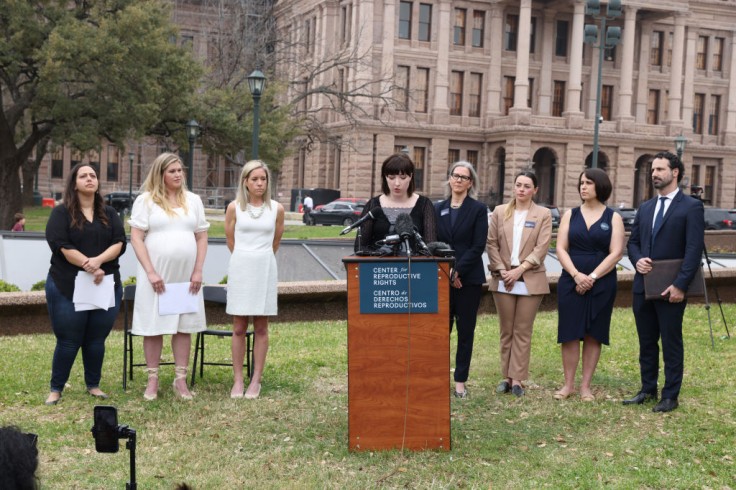
A Texas judge has issued a temporary exemption to the state's controversial abortion ban, specifically allowing women with complicated pregnancies to obtain the procedure.
The ruling aims to protect doctors from prosecution if they, in their "good faith judgment," decide to terminate a pregnancy that poses serious risks to the mother's health or when the fetus will not survive after birth.
The decision challenges the constitutionality of Senate Bill 8 and brings clarity to doctors, empowering them to use their medical judgment to make critical decisions.
However, the state is expected to appeal the ruling, adding further uncertainty to the contentious abortion law.
A Judge's Ruling Provides Relief for Complicated Pregnancies
The Texas Tribune reported that State District Court Judge Jessica Mangrum of Austin handed down the ruling, which grants temporary respite to pregnant individuals facing complicated pregnancies.
The exemption enables doctors to exercise their professional judgment without fearing legal repercussions when deciding to terminate pregnancies that meet specific conditions.
Under the ruling, abortion would be permitted when a pregnancy presents a risk of infection, when the fetus is determined to be nonviable after birth, or when the pregnant person requires invasive treatment for a medical condition.
Judge Mangrum's ruling also questioned the constitutionality of Senate Bill 8, which severely restricted abortion access in Texas.
According to Reuters, the Court's decision highlights the presence of uncertainty surrounding the medical exception within Texas' abortion bans, particularly when it comes to the provision of abortion care based on a physician's good faith judgment and in consultation with the pregnant individual, given a physical emergent medical condition," stated Judge Mangrum in her ruling.
The temporary injunction will remain in effect until the ongoing lawsuit against Texas reaches its conclusion, unless a higher court intervenes.
The expectation is that the injunction will face an appeal. According to the judge's ruling, doctors will be shielded from prosecution when applying their "good faith judgment" in providing abortions for physical medical conditions.
These conditions include instances where the pregnancy poses a risk of infection or endangers the pregnant person's health; cases in which the fetus is unlikely to survive beyond birth, and situations where a medical condition cannot be adequately treated during pregnancy or necessitates frequent and significant medical intervention.
The controversial law allowed private citizens to sue those involved in performing or aiding abortions, creating a challenging and restrictive environment for both patients and medical practitioners.
The injunction stated that enforcing the abortion ban falls beyond the legal jurisdiction of Texas officials, who have been tasked with prosecuting physicians under this law.
Advocacy Groups Celebrate the Ruling's Impact
As reported by the Dallas News, upon hearing the court's decision, advocacy groups, including the Center for Reproductive Rights, representing the plaintiffs in the case, welcomed the ruling with enthusiasm.
The judgment provides much-needed clarity to doctors, enabling them to offer abortions based on medical necessity and their own expertise.
The lawsuit brought by three women against the state aims to define when a medical emergency justifies an abortion, seeking to protect women's reproductive rights and access to timely medical care.
In response to the ruling, Amanda Zurawski, the lead plaintiff, expressed relief and empowerment.
She stated that the ruling would allow individuals to make the best medical decisions for their bodies and lives without fear of political interference.
Potential Appeal and Ongoing Legal Battle
Despite the temporary exemption, the state is expected to appeal the ruling, which could potentially block the injunction while the case proceeds through the legal system.
The trial to determine the issue and clarify when a medical emergency justifies an abortion has been scheduled for March 25.
Until a final decision is reached, the future of abortion access in Texas remains uncertain.
In conclusion, Judge Mangrum's ruling offers hope for women facing complicated pregnancies in Texas, providing them with an opportunity to obtain necessary medical care without fear of prosecution for doctors.
As the legal battle continues, advocates on both sides of the issue are closely monitoring the developments, knowing that the outcome could have far-reaching implications for abortion rights in the state.